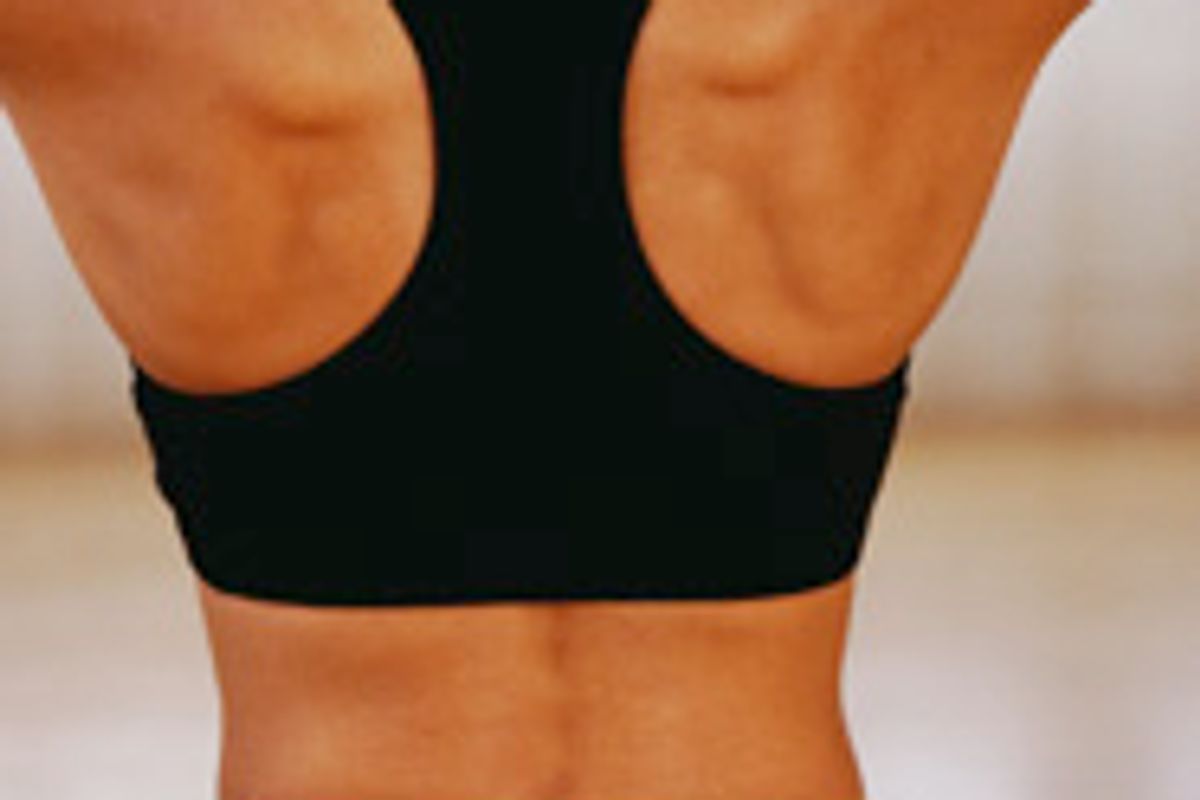I recently met with one of the personal trainers at my gym to re-evaluate my fitness routine. I was okay with my cardio but bored with my strength-training routine. I started faithfully lifting weights years ago, following my breast cancer diagnosis. The doctors all were against it, but my gut told me that my body needed it and it would not hurt me if I did it carefully. Turns out I was right, on both counts. Not that I'm exactly gloating over this, or anything…I'm just so happy I followed my instincts and did the right thing.
But why else would I want to strength train? For one thing, did you know that by the age of 20, the average woman has acquired most of her skeletal mass? But unless we use it…we lose it. A large decline in bone mass occurs in older adults, increasing the risk of osteoporosis. And for women this occurs – you guessed it - around the time of menopause. Loss of estrogen plus inactivity rears its head in an ugly way. It's greatest in the first three to six years after menopause, when we can lose up to 20% of the total bone mass during this time.
If this doesn't convince you to get your strength in order, consider this report from the Surgeon General: By 2020, one in two Americans aged 50 years or older will be at risk for fractures from osteoporosis or low bone mass.
The personal trainer I met with had a refreshing take on the whole weight-lifting thing. Maybe it was because she was a woman in her 50s, too. I barely had to explain to her that I chose her because I didn't want to train with a 20-something year old guy who was all gung-ho and gave me impossible exercises to do and much-too-heavy weights to lift. She got it.
She told me that she trains for function – her exercises not only help strengthen muscles, but they help you in real, everyday situations. They teach all the muscles to work together - rather than isolating them to work independently - and mimic the way you move in real life. Functional training not only increases your strength, but improves balance and flexibility, as well; no weights necessary.
Take getting up from a chair, for instance. Did you ever see an old(er) person struggling to lift themselves out of a chair – especially one that has no arms to support them on their way up? That's because their quadriceps (upper thigh muscles) are too weak to help them lift their bodies off the seat and their bodies are not able to control or balance their body weight. (In fact, you need strong muscles to do that and other things, too, like bending and squatting. Think about it when you bend down to feed or pet your dog).
So, she gave me an exercise to do - and it wasn't the one I'd been doing all these years for my quads. In fact, it's something anyone can do at home, even while you watch TV. It's called a "wall squat." You can also do it with a large stability ball between your back and the wall. For an extra bicep-bonus, you can hold 5 or 10-pound weights in each hand (but don't do this until you're comfortable with the exercise):
Wall Squat: Stand with your back against a smooth wall. Your feet should be shoulder-width apart and about a 1-1/2 to two of your foot lengths from the wall.
- Bend knees slightly; hang arms freely at sides, using holding light weights.
- Slowly slide your back down the wall until knees come close to a 90-degree angle, but do not exceed it.
- Then press upward, back still against wall, until legs are nearly straight.
- Repeat.
There are so many other, everyday things around us to do, like hoisting a huge water bottle into the dispenser, reaching up to pick up something from a high shelf, gardening, carrying grocery bags; I could go on and on.
I don't know about you, but I just hate feeling like the "helpless female" needing assistance to do anything that requires some brawn!
What do you do to keep your muscles strong? Do you feel a difference in your strength as you get older?
Here's some more helpful information on this topic.
A book I enjoyed reading on Function Training: The Complete Idiot's Guide. It's packed with great info plus photos that demonstrate just how to perform all these exercises.







